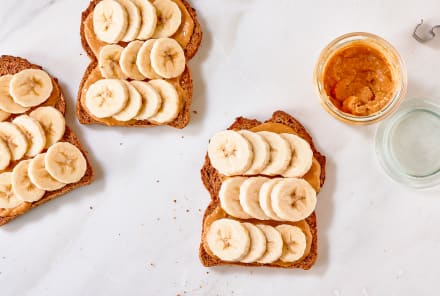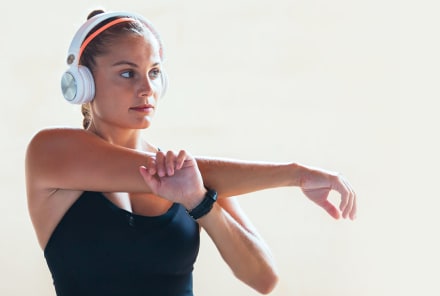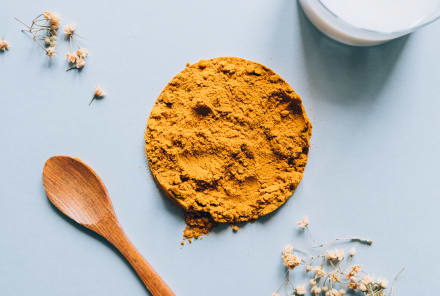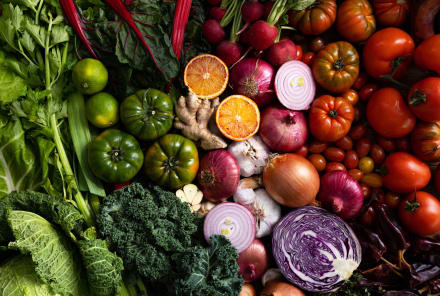Advertisement
This Is What A Neuroscientist (Who Studies Hunger) Eats In A Day


One social media strategy I suggest you adopt: vetting healthy versus unhealthy "what I eat in a day" videos. Taking recipe inspiration from credentialed experts in health and nutrition is always a good idea, though that doesn't mean you can't replicate any creator's menu. It's just important they actually eat enough food to fuel an active lifestyle.
Still, craving a blueprint for what to eat in a day is a fair request, as nutrition isn't always intuitive. To add some expert-backed advice to the mix, look no further than the mindbodygreen podcast: Neuroscientist and addiction psychiatrist Jud Brewer, M.D., Ph.D. (who, by the way, studies hunger), recently shared how he plans his daily meals, and we grabbed the details for you below.
Breakfast: Eggs & toast
Brewer begins the day with a classic combination: eggs and whole-grain toast.
The simplicity makes it a quick meal to whip up, but don't let that fool you into thinking it lacks nutrients, because eggs pack quite a punch.
See, eggs are rich in choline, the precursor chemical for acetylcholine, one of the most fundamental neurotransmitters1. On top of that, they're rich in omega-3 fatty acids, including DHA.
The brain is the fattiest organ in the body and thus needs fatty acids to operate optimally—particularly DHA, which is the most abundant fatty acid found in the brain and helps keep the nervous system in tiptop shape. It's no wonder a neuroscientist loves eggs so much.
Lunch: Avocado toast and a protein shake
For midday nutrition, Brewer opts for avocado toast and a protein shake. Avocados come with plenty of healthy fats like plant-based omega-3s to boost brain health (along with supporting heart, eye, and joint health).
His go-to protein shake recipe includes:
- Protein powder
- Blueberries
- Spinach
- Soy milk
Brewer uses plant-based protein powder, but feel free to use any kind you like (pea, hemp, egg, or whey protein isolate). When seeking a high-quality protein powder, just be sure to look for one with a complete amino acid profile and at least a few grams of leucine per serving—here's one great option to consider.
Dinner: Veggie chili
Brewer often ends the day with some kind of vegetable-based chili, which is a surefire way to get in a host of different plants.
Making plant diversity a priority and aiming for 30 different plants a week has been shown to support optimal microbiome health. Given the significance of the gut-brain axis2, a meal rich in diverse plants provides cognitive support as well.
For a more filling dish, feel free to add a rich source of protein like grass-fed ground beef, chicken, tofu, tempeh, etc.
The takeaway
Neuroscientist Jud Brewer focuses his daily meals on brain-boosting foods like eggs, avocado, and protein-rich items while prioritizing plant diversity too. Just remember: "What I eat in a day" videos recount a single snapshot of one's daily routine. Even health experts have off days and indulge every once in a while, so don't hold yourself to unrealistic standards—after all, an uptick in stress won't serve your brain health.


















